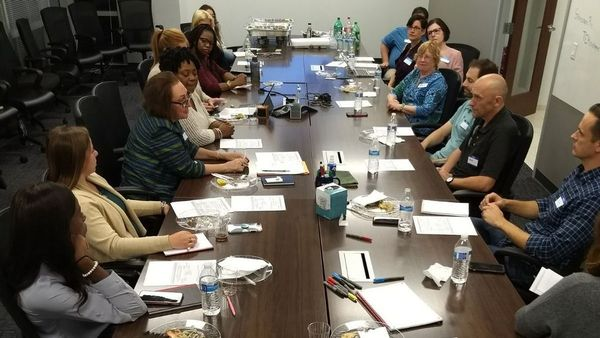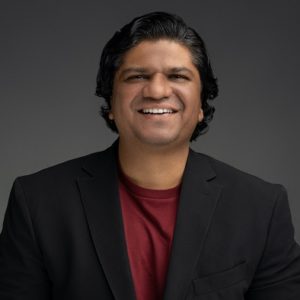Designers Get Tips on Conducting User-Experience Research at Central NJ Design Meetup
If you wanted to learn more about getting management “buy-in” to fund User Experience (UX) research or about avoiding the pitfalls of UX testing, you should have been at the Central NJ Design Meetup event on September 26, in Bridgewater.
The “LearnUp: UX Research Skills” meeting attracted UX designers, researchers, strategists and other guests.
Three UX experts led the discussion: Holly Cole, senior user research analyst, iCIMS (Holmdel); Alice Preston, former VP of UX design at BNY Mellon (New York); and Josephine Giaimo, membership and operations lead at the User Experience Professionals Association’s New Jersey Chapter (Princeton). The discussion was facilitated by Ben Bakelaar, organizer of the Central NJ Design Meetup (New Brunswick), and founder of the dSpace Design Bootcamp (Highland Park) and Human Experience Systems (Highland Park).
To kick off the meeting, Giaimo summarized the theory of evidence-based user research, and the top twenty user research methods, as reported in a 2014 report by Christian Rohrer, then VP of design, research and enterprise services at Capital One, for the Nielsen Norman Group (Fremont, Calif.).
What follows are some takeaways from the session:
- To get managers to fund UX research:
- Use plain language, not UX jargon. Better yet: Use the language that management uses.
- Talk about the return on investment (ROI). Give the managers statistics on how much money or man hours they will save.
- Generate a single “Aha” moment, so that top management will understand the value.
- Look for small successes, and build on them.
- Arm yourself with evidence, stick up for yourself, but be prepared for rejection.
- Make it fun!
- If you can’t get management to fund you, interview your colleagues at lunch: Any research is better than no research.
- A/B testing can show which version of a prototype users prefer, but not why they prefer it.
- Analytics cannot show the intentions of users.
- If you must do research that is “cheap and quick,” beware of “dirty data,” and be careful how you interpret the results.
- Mental models are the way we perceive the world, or the way we believe something works. Everyone has a different mental model! Design for the user’s mental model. Understand the user’s mental model by conducting research.
- Observation can be done in a variety of ways, ranging from viewing users without their knowledge to being fully embedded in the users’ workplace.
- Interviews can be structured, semi-structured or unstructured. The rule of thumb is 5-10 interviews per user group. And beware: Users can lie!
- Contextual inquiry is a blend of interviewing and observation.
The attendees heard tips and stories from the panel of experts. For instance, Cole said that she likes to dress like a company employee (she stops in the day before to see what people are wearing!), and wander around a user site, pretending to be a new hire while making her observations. Preston said that the airlines redesigned their planes based on user studies in which customers said that they would pay more for greater leg room. But it turned out that they wouldn’t. In other words, don’t believe what users say they will do.
The event was hosted by the recruiting firm TEKsystems (Bridgewater and Parsippany), whose representatives Jamie Tomlinson and Amanda Thompson offered advice on landing UX jobs and on what hiring managers are looking for in UX professionals.
[On October 20, the Central NJ Design Meetup will offer an introduction to the prototyping software Sketch (https://www.meetup.com/Central-NJ-Design-Meetup/events/254996330). On October 29, the New Jersey chapter of the User Experience Professionals Association is offering a free webinar on how to obtain UX certification (https://www.meetup.com/User-Experience-Professionals-Association-UXPA-NJ-chapter/events/255008268/).]


